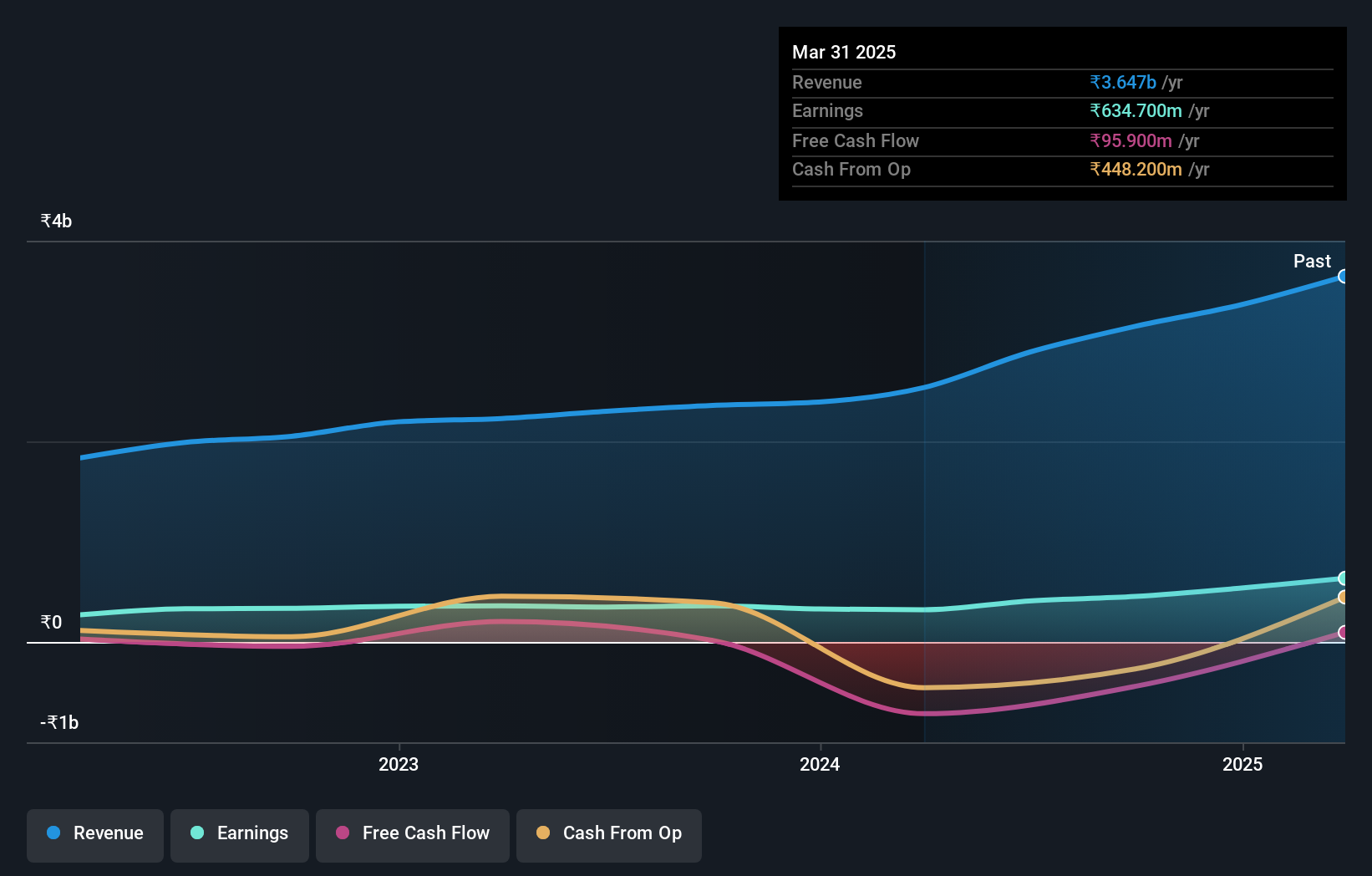Retail investors are Paras Defence and Space Technologies Limited's (NSE:PARAS) biggest owners and were hit after market cap dropped ₹5.8b
Key Insights
- Significant control over Paras Defence and Space Technologies by retail investors implies that the general public has more power to influence management and governance-related decisions
- The top 21 shareholders own 43% of the company
- 36% of Paras Defence and Space Technologies is held by insiders
A look at the shareholders of Paras Defence and Space Technologies Limited (NSE:PARAS) can tell us which group is most powerful. With 57% stake, retail investors possess the maximum shares in the company. In other words, the group stands to gain the most (or lose the most) from their investment into the company.
While the holdings of retail investors took a hit after last week’s 8.4% price drop, insiders with their 36% also suffered.
Let's take a closer look to see what the different types of shareholders can tell us about Paras Defence and Space Technologies.
View our latest analysis for Paras Defence and Space Technologies

What Does The Institutional Ownership Tell Us About Paras Defence and Space Technologies?
Institutional investors commonly compare their own returns to the returns of a commonly followed index. So they generally do consider buying larger companies that are included in the relevant benchmark index.
As you can see, institutional investors have a fair amount of stake in Paras Defence and Space Technologies. This suggests some credibility amongst professional investors. But we can't rely on that fact alone since institutions make bad investments sometimes, just like everyone does. When multiple institutions own a stock, there's always a risk that they are in a 'crowded trade'. When such a trade goes wrong, multiple parties may compete to sell stock fast. This risk is higher in a company without a history of growth. You can see Paras Defence and Space Technologies' historic earnings and revenue below, but keep in mind there's always more to the story.

We note that hedge funds don't have a meaningful investment in Paras Defence and Space Technologies. Looking at our data, we can see that the largest shareholder is the CEO Munjal Shah with 24% of shares outstanding. With 3.5% and 2.6% of the shares outstanding respectively, Abu Dhabi Investment Authority and Nippon Life India Asset Management Limited are the second and third largest shareholders.
Our studies suggest that the top 21 shareholders collectively control less than half of the company's shares, meaning that the company's shares are widely disseminated and there is no dominant shareholder.
Researching institutional ownership is a good way to gauge and filter a stock's expected performance. The same can be achieved by studying analyst sentiments. We're not picking up on any analyst coverage of the stock at the moment, so the company is unlikely to be widely held.
Insider Ownership Of Paras Defence and Space Technologies
The definition of company insiders can be subjective and does vary between jurisdictions. Our data reflects individual insiders, capturing board members at the very least. The company management answer to the board and the latter should represent the interests of shareholders. Notably, sometimes top-level managers are on the board themselves.
I generally consider insider ownership to be a good thing. However, on some occasions it makes it more difficult for other shareholders to hold the board accountable for decisions.
It seems insiders own a significant proportion of Paras Defence and Space Technologies Limited. Insiders own ₹23b worth of shares in the ₹64b company. This may suggest that the founders still own a lot of shares. You can click here to see if they have been buying or selling.
General Public Ownership
The general public, who are usually individual investors, hold a substantial 57% stake in Paras Defence and Space Technologies, suggesting it is a fairly popular stock. This level of ownership gives investors from the wider public some power to sway key policy decisions such as board composition, executive compensation, and the dividend payout ratio.

Next Steps:
While it is well worth considering the different groups that own a company, there are other factors that are even more important. To that end, you should be aware of the 1 warning sign we've spotted with Paras Defence and Space Technologies .
Of course, you might find a fantastic investment by looking elsewhere. So take a peek at this free list of interesting companies.
NB: Figures in this article are calculated using data from the last twelve months, which refer to the 12-month period ending on the last date of the month the financial statement is dated. This may not be consistent with full year annual report figures.
Have feedback on this article? Concerned about the content? Get in touch with us directly. Alternatively, email editorial-team (at) simplywallst.com.
This article by Simply Wall St is general in nature. We provide commentary based on historical data and analyst forecasts only using an unbiased methodology and our articles are not intended to be financial advice. It does not constitute a recommendation to buy or sell any stock, and does not take account of your objectives, or your financial situation. We aim to bring you long-term focused analysis driven by fundamental data. Note that our analysis may not factor in the latest price-sensitive company announcements or qualitative material. Simply Wall St has no position in any stocks mentioned.
 Wall Street Journal
Wall Street Journal